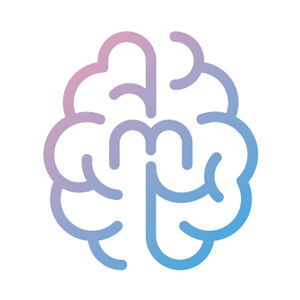预约演示
更新于:2026-02-08

University of Basel
更新于:2026-02-08
概览
标签
肿瘤
神经系统疾病
其他疾病
小分子化药
细胞疗法
单克隆抗体
疾病领域得分
一眼洞穿机构专注的疾病领域
暂无数据
技术平台
公司药物应用最多的技术
暂无数据
靶点
公司最常开发的靶点
暂无数据
| 排名前五的药物类型 | 数量 |
|---|---|
| 小分子化药 | 14 |
| 治疗用放射药物 | 4 |
| 多肽偶联核素 | 3 |
| ADC | 2 |
| 单克隆抗体 | 2 |
关联
29
项与 University of Basel 相关的药物靶点 |
作用机制 SSTR拮抗剂 |
在研机构 |
在研适应症 |
非在研适应症- |
最高研发阶段申请上市 |
首次获批国家/地区- |
首次获批日期- |
作用机制 5-HT2A receptor激动剂 [+1] |
原研机构 |
最高研发阶段临床3期 |
首次获批国家/地区- |
首次获批日期- |
作用机制 5-HT2A receptor激动剂 |
原研机构 |
最高研发阶段临床3期 |
首次获批国家/地区- |
首次获批日期- |
1,156
项与 University of Basel 相关的临床试验NCT04516603
Randomized Placebo-controlled Phase II Cross-over Study on the Influence of Fampridine on Working Memory in Healthy Subjects
Proof-of-concept study on the effects of 10 mg fampridine (oral administration) on working memory in healthy participants.
The hypotheses is that fampridine improves working memory performance.
The hypotheses is that fampridine improves working memory performance.
开始日期2040-01-01 |
申办/合作机构  University of Basel University of Basel [+1] |
NCT05688241
Epstein-Barr Virus (EBV) -Specific T Memory Stem Cell (Tscm) Therapy to Treat EBV- Driven Lymphomas/ Diseases
In this multi-center open-label, non-randomized phase I/II intervention study three consecutive doses of donor-derived EBV Tscm-CTLs will be administered to 10 patients with treatment-refractory EBV lymphoma, diseases or PTLDs. EBV Tscm-CTLs will derive from hematopoietic cell transplant (HCT) or third-party donors.
开始日期2026-11-01 |
申办/合作机构 |
NCT07166549
A Phase I Trial of Bispecific Anti-CD19, Anti-CD20 CAR T Cells for B Cell Malignancies
This study is to provide locally produced, bispecific CD19 CD20 CAR T cells to patients with B-cell lymphoma/leukemia who have no access to commercial CAR T cells or who have relapsed thereafter. The primary objective is to assess the safety of bispecific anti-CD19, anti- CD20 CAR T cell-therapies after lymphodepleting chemotherapy in patients with B cell malignancies with exhausted standard treatment options.
开始日期2026-06-01 |
申办/合作机构 |
100 项与 University of Basel 相关的临床结果
登录后查看更多信息
0 项与 University of Basel 相关的专利(医药)
登录后查看更多信息
39,763
项与 University of Basel 相关的文献(医药)2026-12-31·European Journal of Psychotraumatology
Understanding the developmental impact of psychological maltreatment through the lens of the dimensional model of adversity and psychopathology
Article
作者: Beck, Katharina ; Wallimann, Meret Sophie ; Lätsch, David Cyrill
Background: Psychological maltreatment is linked to negative developmental outcomes in adolescents. It includes psychological abuse (PA) and psychological neglect (PN), which are commonly studied as a pair. This study applied the dimensional model of adversity and psychopathology (DMAP), which conceptualises abuse as a threatening experience involving harm or the threat of harm that primarily impairs social-emotional processing, such as emotion regulation, while it views neglect as deprivation or absence of parental care that predominantly affects cognitive functioning, such as working memory.Objective: In an effort to better understand the harmful nature of psychological maltreatment, this study applies the DMAP to understand whether PA and PN have differential effects paving divergent trajectories to psychopathology, hypothesising that PA predicts dysfunctional emotion regulation, whereas PN impairs working memory.Method: A classroom-based online survey was conducted in Switzerland. The analysis incorporated a sample size of 1,207 adolescents across 82 classes. PA, PN, and dysfunctional emotion regulation were assessed using self-report, and working memory was assessed using a performance task. Hierarchical linear regression models were conducted with controls for co-occurring deprivation, threat, and other individual and family factors (e.g. socioeconomic status, attention deficit hyperactivity disorder) at level 1, and for education level and the trauma load of the school class at level 2.Results: In modelling dysfunctional emotion regulation, PA (β = 0.45, p < .001) was the strongest predictor, whereas PN had no significant effect. In the working memory model, neither PN nor PA was significantly predictive.Conclusion: These findings partially support the DMAP framework, underscoring psychological abuse as an important factor in dysfunctional emotion regulation and psychopathology.
2026-12-01·Journal of Sport and Health Science
Intensity modifies the association between continuous bouts of physical activity and risk of mortality: A prospective UK Biobank cohort analysis
Article
作者: Henson, Joe ; Razieh, Cameron ; Goldney, Jonathan ; Yates, Tom ; Khunti, Kamlesh ; Davies, Melanie ; Zaccardi, Francesco ; Kingsnorth, Andrew P ; Schwendinger, Fabian ; Rowlands, Alex V
BACKGROUND:
Recent evidence suggests continuous bouts of physical activity (PA) are associated with longevity. We hypothesized the risk of mortality would be lower when the most active minutes of the day were in a continuous bout.
METHODS:
PA was assessed using accelerometery in UK Biobank participants. The intensity of the most active continuous (MXCONT) and accumulated (MX) X min of the day, and their ratio (MXRATIO = MXCONT/MX), were determined. MXRATIO indicates how the most active minutes of the day are accumulated, ranging from a single continuous bout through to sporadic accumulation spread across the day. Durations (X) considered ranged from 1 to 20 min. The outcome was mortality.
RESULTS:
In total, 94,541 participants (56.5% female) were included. Over a median (interquartile range) follow-up of 6.9 (6.3, 7.4) years, 2649 (2.8%) deaths occurred. Intensity moderated the association between how the most active minutes of the day were accumulated and mortality risk, expressed relative to sporadically accumulated moderate PA. If the most active minutes were of moderate intensity, the risk of mortality was halved for continuous compared to sporadic accumulation, irrespective of duration; if the most active minutes were of vigorous intensity, a continuous bout was associated with the lowest risk for durations under 5 min (e.g., 3 min: hazard ratio (HR) = 0.27, 95% confidence interval (95%CI): 0.21-0.34), while sporadic accumulation was associated with the lowest risk for durations beyond 5 min (HR = 0.11, 95%CI: 0.08-0.15 for the most active 20 min).
CONCLUSION:
Optimal PA patterns for reducing mortality differ by intensity and duration. For moderate-intensity PA, a lower mortality risk may be optimized by prioritizing continuous PA for up to 20 min. However, for vigorous-intensity PA, multiple short bouts (<5 min) may be optimal. This suggests tailored PA recommendations may enhance longevity benefits.
2026-06-01·Global epidemiology
On misconceptions about the Brier score in binary prediction models
Article
作者: Hoessly, Linard
The Brier score is a widely used metric in epidemiological and clinical research for evaluating the accuracy of probabilistic predictions for binary outcomes, such as disease occurrence, treatment response, and screening performance. Despite its popularity, the Brier score is frequently misunderstood, leading to flawed interpretation of prediction models and potentially misguided public health and clinical decisions. This study aims to didactically clarify common misconceptions about realised Brier scores and to provide practical, statistically rigorous guidance for its correct interpretation in epidemiologic and public health prediction models. We analytically examined its statistical properties and conducted simulation studies across diverse scenarios, varying the distribution of true outcome probabilities, prediction accuracy, sample size, and event prevalence. Five prevalent misconceptions were identified, including the mistaken belief that a Brier score of zero indicates a perfect model. Analytic arguments and simulations demonstrated that even perfectly specified models yield non-zero Brier scores under realistic conditions. The Brier score was shown to reflect not only prediction accuracy but also the underlying distribution of true risks and random variation in outcomes. Comparisons across different populations or disease settings can therefore be misleading, and the Brier score does not directly measure calibration. We recommend restricting comparisons to the same population and complementing the Brier score with calibration metrics and measures of clinical or public health utility. Adopting these practices will improve the validity and interpretability of risk prediction in epidemiologic research and enhance decision-making in population health.
237
项与 University of Basel 相关的新闻(医药)2026-02-05
THURSDAY, Feb. 5, 2026 -- For patients with perioperative myocardial infarction /injury (PMI) after undergoing noncardiac surgery, cardiologist evaluation is associated with a reduced risk for major adverse cardiac events and all-cause death at one year, according to a study published online Jan. 30 in the European Heart Journal .
Noemi Glarner, M.D., Ph.D., from University Hospital Basel in Switzerland, and colleagues conducted a multicenter prospective study involving high-risk patients undergoing noncardiac surgery who were eligible for PMI active surveillance. Patients with PMI receiving a cardiologist evaluation were compared to those not receiving evaluation. Major adverse cardiac events, defined as a composite of cardiovascular death, myocardial infarction, acute heart failure, and life-threatening arrhythmia at 365 days, were examined as the primary end point.
Of the 14,294 patients, 1,048 developed PMI and were eligible for analysis; 58.6 percent received postoperative cardiologist evaluation. The researchers found that cardiologist evaluation was independently associated with a lower risk for major adverse cardiac events and all-cause death after adjustment (adjusted hazard ratios, 0.54 and 0.65, respectively) at 365 days. These findings were confirmed in sensitivity analyses. The likelihood of undergoing noninvasive cardiac imaging and receiving dual antiplatelet and statin therapy was increased among patients receiving cardiologist evaluation.
"Surgery is only carried out for good reason and following careful assessment of the risks, but complications do still occur. It's vital to screen for PMI in patients who are at risk. Where signs of heart injury are found, a cardiologist can ensure patients get the monitoring and treatment they need," Glarner said in a statement.
Several authors disclosed ties to biopharmaceutical companies, including Abbott Diagnostics, Roche, AstraZeneca, and Boehringer Ingelheim, which partially funded the study.
Abstract/Full Text
Editorial

AHA会议临床研究
2026-02-04
·小红书
📍 瑞士|研究型大学|生命科学与制药研究重镇 University of Basel(巴塞尔大学) 在 药物科学(Pharmaceutical Sciences)× 药物研发 × 分子药理与转化医学研究 方向博士培养体系成熟, 与欧洲制药产业联系极紧密,基础研究与临床应用结合度高, 长期稳定招收研究型 PhD,国际博士比例高,英文科研环境成熟。 📌 博士研究方向 • 药物科学(Pharmaceutical Sciences) • 药物发现与分子设计 • 药理学与毒理学研究 • 药物递送系统与纳米药物 • 转化医学与疾病靶点研究 🧪 科研环境 • 博士主要分布在生命科学学院与药学研究中心 • 实验导向极强,强调机制研究与药物功能验证 • 博士以独立研究为主,常嵌入国际药企合作项目 • 国际合作密集,科研成果转化能力突出 💰 资助情况 • 瑞士博士为正式受雇研究人员 • 学费全免 • 固定高薪资(瑞士博士薪酬体系) • 社会保险与科研经费齐全 • 合同期通常 3–4 年 🎯 适合背景 • 药学 / 生物医学 / 分子生物学 • 化学 / 生物工程相关背景 • 有实验研究与药物开发经验者优势明显 📌 申请提示 • 以研究方向匹配度 + 实验能力 + 导师契合度为核心 • Proposal 建议明确:疾病靶点、药物机制与实验验证路线 • 有科研论文、实验项目或制药相关经验非常加分 👉如果你想了解巴塞尔大学的药物科学博士和你的背景是否匹配,👇戳我,为你快速评估[自拍R][自拍R][自拍R]#博士申请 #全奖读博士 #PhD申请 #生物医学科研 #药学 #博士留学 #医学 #生物与医药 #药企 #医学博士
2026-01-22
THURSDAY, Jan. 22, 2026 -- Community water fluoridation (CWF) is not associated with adverse birth outcomes, according to a study published online Jan. 20 in JAMA Network Open .
Benjamin Krebs, Ph.D., from the University of Basel in Switzerland, and colleagues conducted a cohort study to examine the association between prenatal exposure to CWF and birth outcomes using an event-study analysis with a difference-in-differences approach, exploiting the staggered rollout of CWF from January 1968 to December 1988 across U.S. counties.
The sample included 11,479,922 singleton births across 677 counties (408 CWF-treated [60.3 percent] and 269 never treated [39.7 percent]) during the 21-year period. The researchers found no evidence of an association for CWF with birth weight or other birth outcomes. No discernible pretreatment trends were seen, and there were no significant changes after adoption of CWF, with estimates of small magnitude seen across all posttreatment periods, ranging from −8.44 to 7.20 g. Sensitivity analyses incorporating state-specific time trends, alternative exposure thresholds, and tests for compositional changes in births supported these findings.
"CWF is not associated with infant health as measured by birth weight, contributing to ongoing evaluations of the safety of CWF, particularly with regard to potential adverse effects during pregnancy," the authors write.
Abstract/Full Text

临床结果
100 项与 University of Basel 相关的药物交易
登录后查看更多信息
100 项与 University of Basel 相关的转化医学
登录后查看更多信息
组织架构
使用我们的机构树数据加速您的研究。
登录
或

管线布局
2026年03月01日管线快照
管线布局中药物为当前组织机构及其子机构作为药物机构进行统计,早期临床1期并入临床1期,临床1/2期并入临床2期,临床2/3期并入临床3期
药物发现
4
14
临床前
临床1期
6
5
临床2期
其他
19
登录后查看更多信息
当前项目
登录后查看更多信息
药物交易
使用我们的药物交易数据加速您的研究。
登录
或

转化医学
使用我们的转化医学数据加速您的研究。
登录
或

营收
使用 Synapse 探索超过 36 万个组织的财务状况。
登录
或

科研基金(NIH)
访问超过 200 万项资助和基金信息,以提升您的研究之旅。
登录
或

投资
深入了解从初创企业到成熟企业的最新公司投资动态。
登录
或

融资
发掘融资趋势以验证和推进您的投资机会。
登录
或

生物医药百科问答
全新生物医药AI Agent 覆盖科研全链路,让突破性发现快人一步
立即开始免费试用!
智慧芽新药情报库是智慧芽专为生命科学人士构建的基于AI的创新药情报平台,助您全方位提升您的研发与决策效率。
立即开始数据试用!
智慧芽新药库数据也通过智慧芽数据服务平台,以API或者数据包形式对外开放,助您更加充分利用智慧芽新药情报信息。
生物序列数据库
生物药研发创新
免费使用
化学结构数据库
小分子化药研发创新
免费使用


